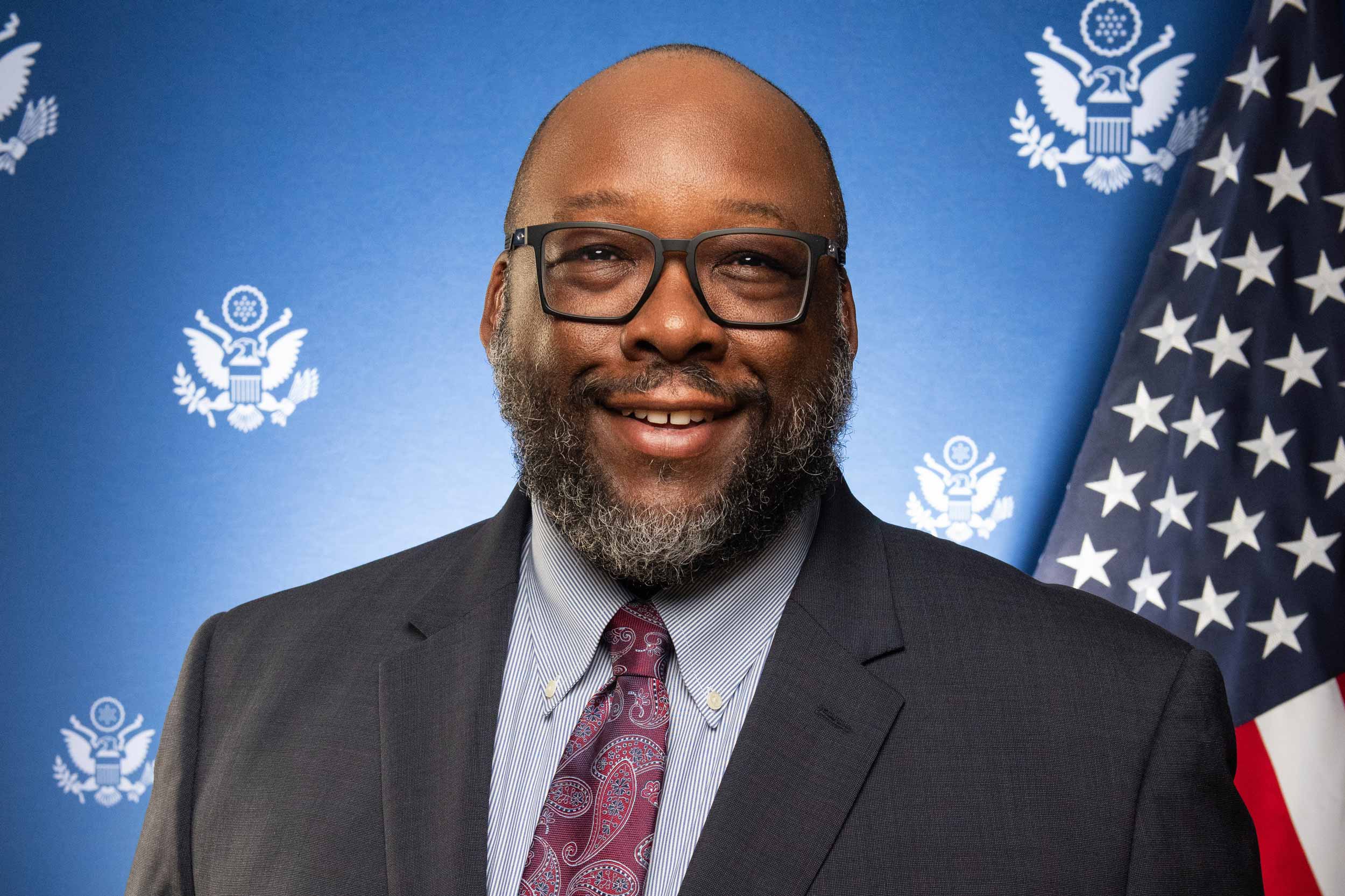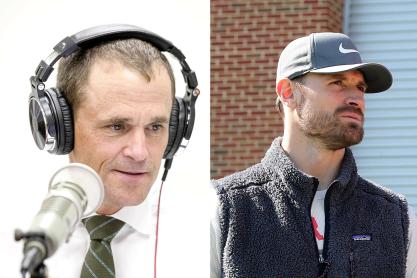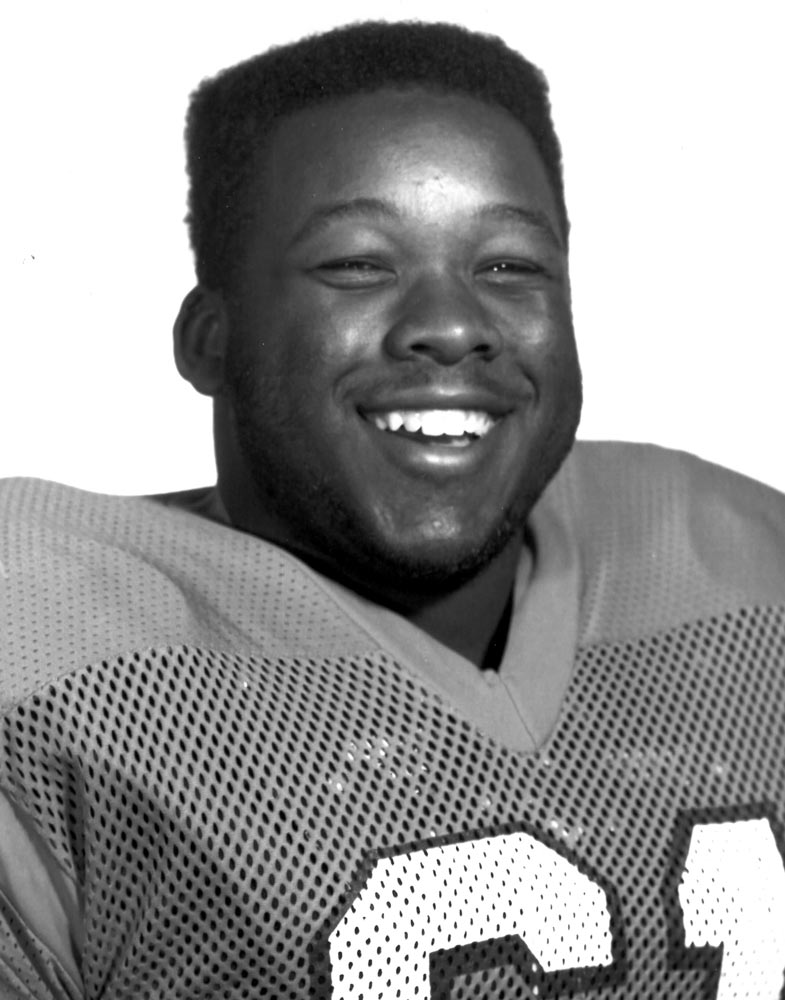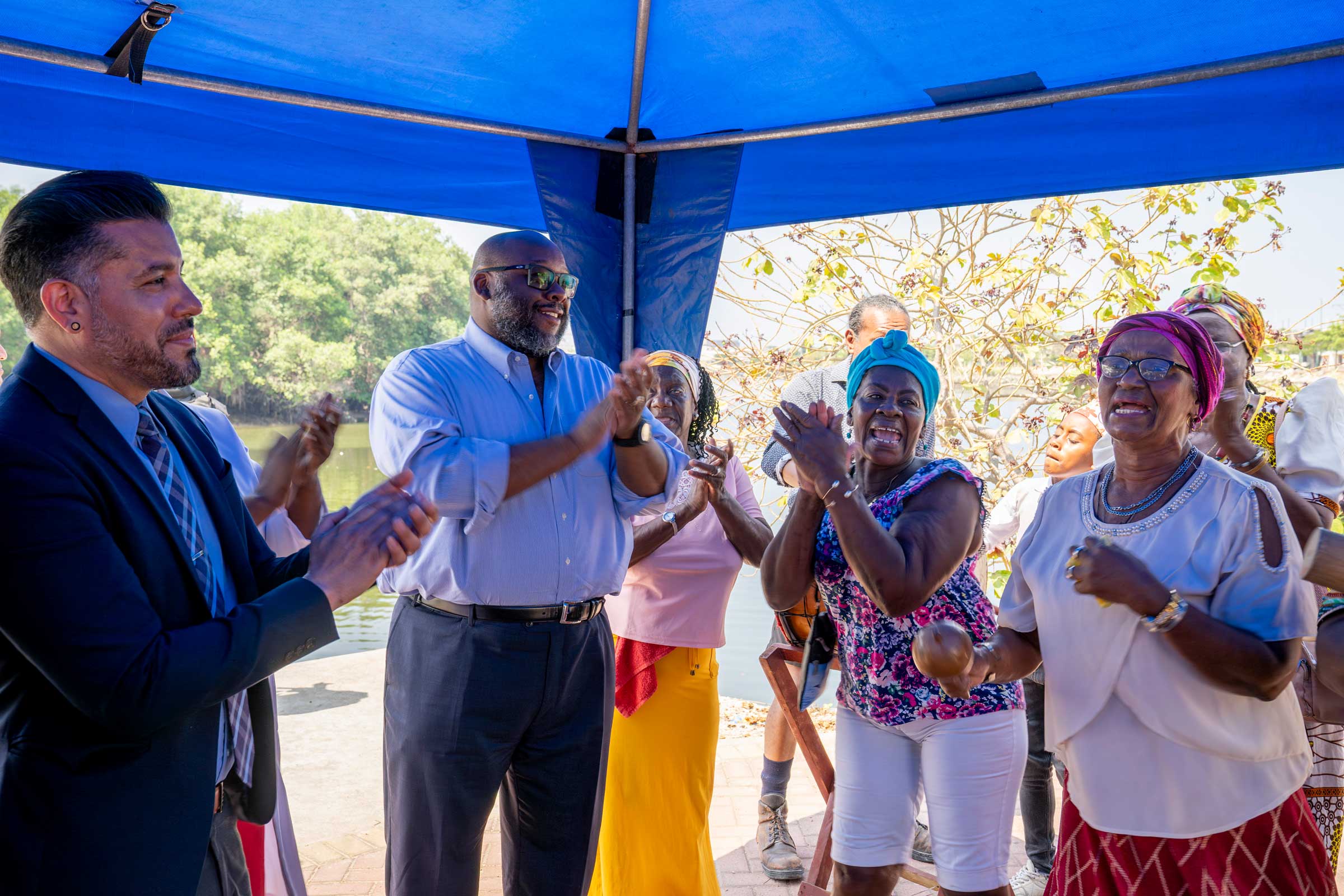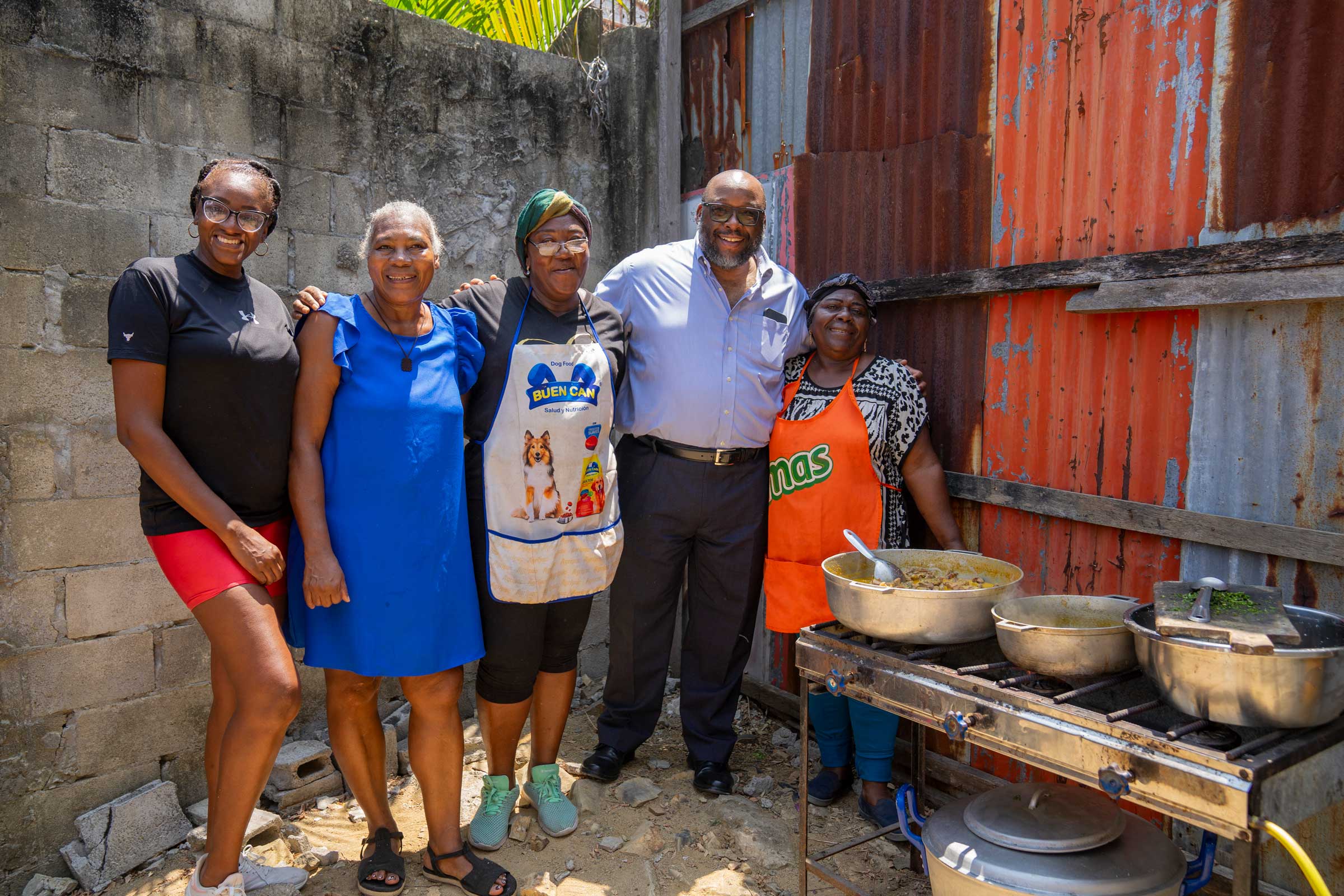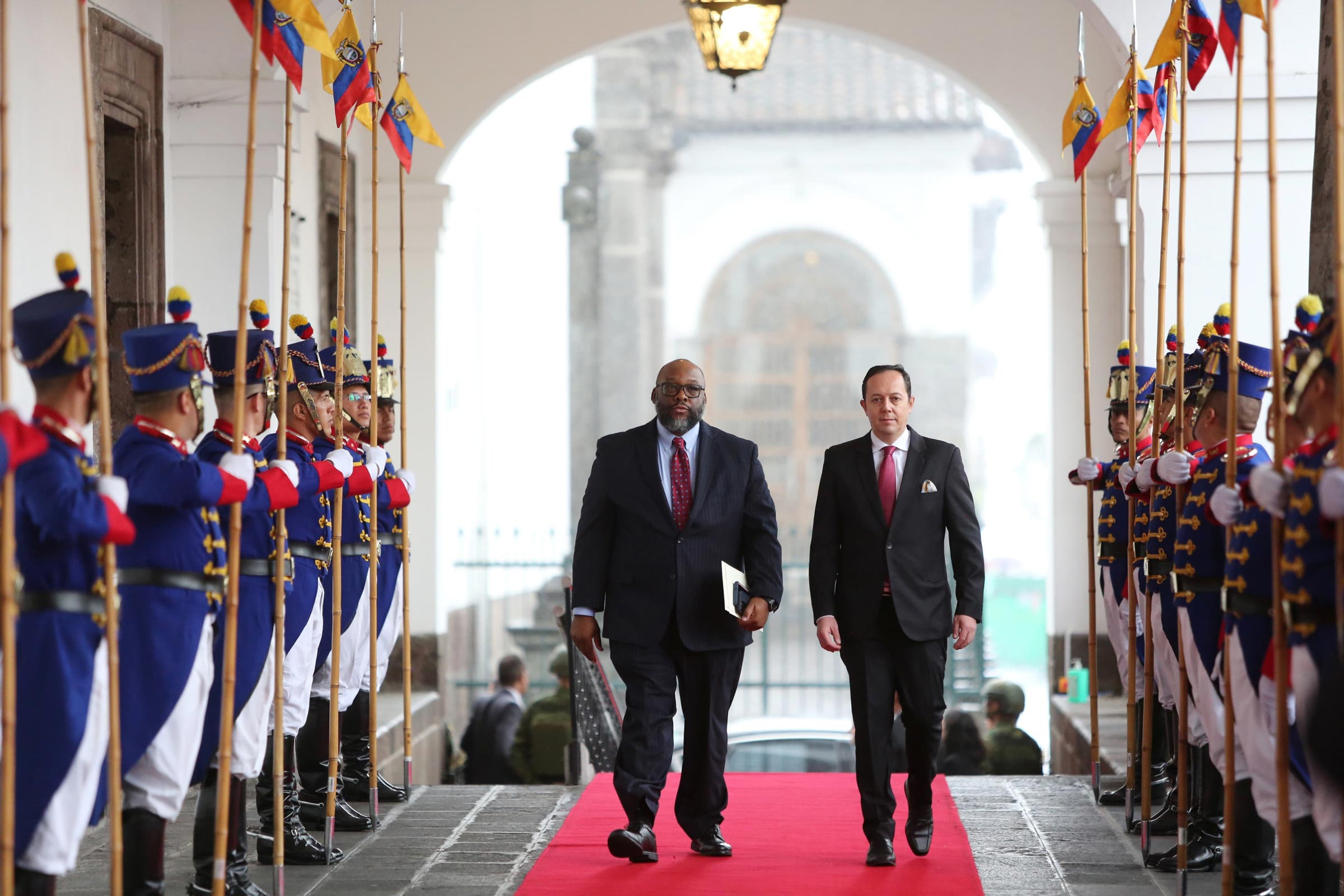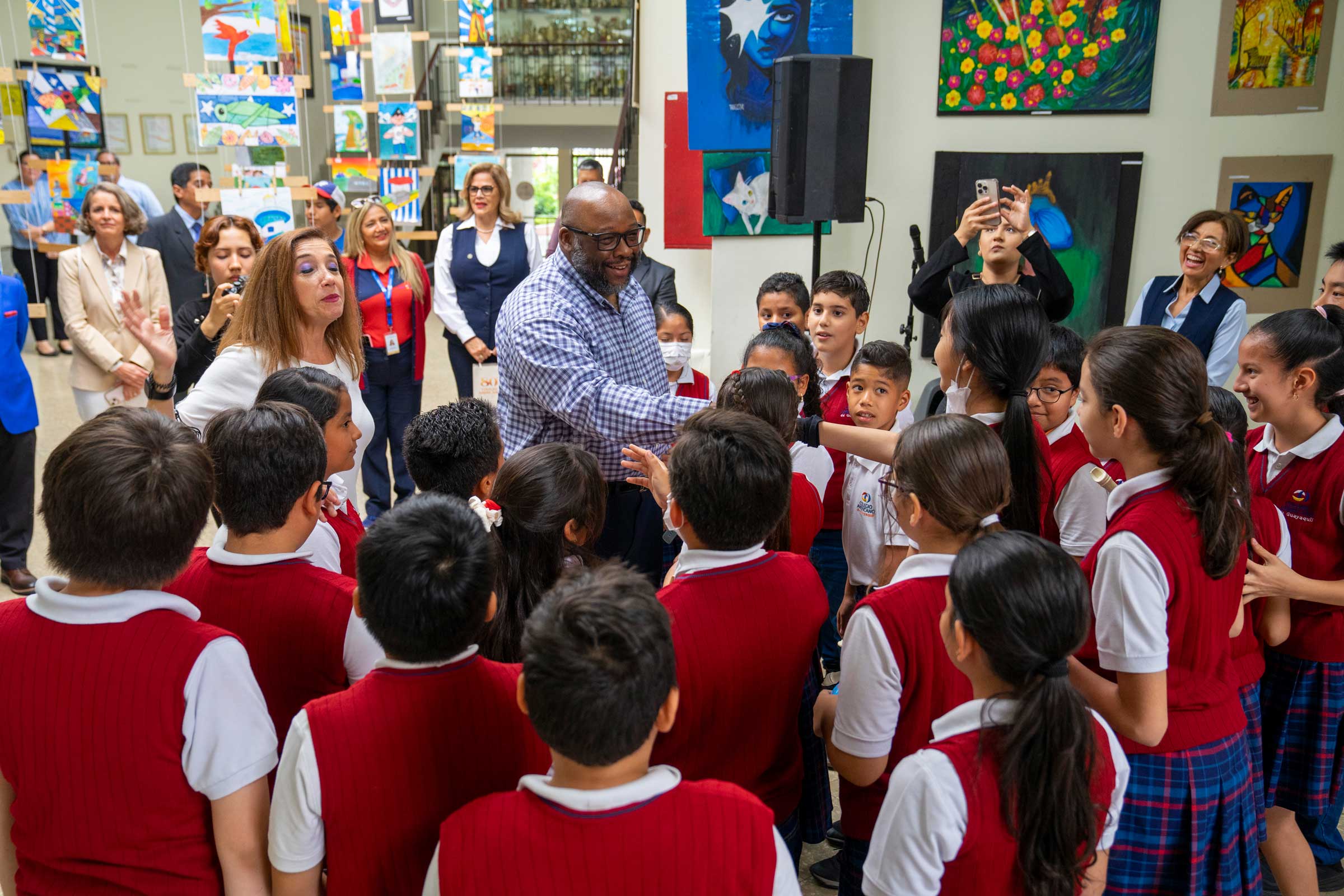Another trip, this time to Monticello, also inspired Brown. He learned Thomas Jefferson was a diplomat before he was president. “He went to France, and he was representing our country,” Brown recalled. “And it was one of these things where it’s like, ‘Man, if Jefferson could go to France and represent, I could do it, too.’”
Brown applied to UVA, but his inconsistent high school record proved to be a problem. The Office of Admission replied with the dreaded thin envelope containing a single-page rejection letter.
Brown’s father challenged him to go back to UVA’s admission office. “Are you gonna let those people up at the University tell you that you can’t go to school up there?” Arthur recalled him saying.
So Arthur went back in person and told them they’d made a mistake. “They sent out the regular folks who deal with students who are crying about not getting admitted,” Brown said. “They kicked me to the curb.”
They told him Blackburn was the only one who could change the decision. So, when he got home, Brown opened the phone book, found a listing for “John A. Blackburn” and dialed the number. Rather surprised at Brown’s boldness, Blackburn invited the rejected applicant to meet at his office. They talked through a lot of things, including Brown’s dream of being a diplomat.
Betty Blackburn, Jack’s widow, remembers Arthur Brown’s story well.
“He came dressed in freshly ironed khaki pants, blue shirt and UVA tie. Loafers, too,” she said. “Jack was tickled by that and saw what he loved – a highly motivated man dressed to impress.”
Brown said, “His question to me was, ‘Well, if you don’t get into the University of Virginia, what are you going to do?’ And I said, ‘I’ll be going to Parris Island.’
“His whole body language was like, ‘That’s the alternative?’ I’m like, ‘Yeah, that’s it. UVA or bust. UVA or the Marine Corps.’”
It worked. “He was like, ‘OK, we’ll get back to you.’ And then after that, I received sort of a provisional acceptance. I had to do summer classes, sort of brush up on a couple things,” Brown said.
On Grounds
Brown thrived at UVA. He held several part-time jobs, including restaurant dishwasher and University Transit System bus driver. He joined the football team for a season as a walk-on, but it was more than he expected.
“At that level, it’s a whole other thing, and it was beyond me,” he recalled. “I saw that there were kegs of beer on the rugby pitch next to my fraternity, Sigma Nu, and I was like, ‘Man, I’m out of here. I’m gonna go play rugby.’”
He delved into history, sociology, government, anthropology, jazz music and the African diaspora. Brown double-majored in sociology and African American studies, and he visited Blackburn every year to report on his progress.
“Undergraduate studies were great, because I really got a chance to grow academically and understand the broader world,” he said. “But I was still stuck in Charlottesville, Albemarle County. I was born in UVA Hospital. And so it was one of these things where it was like, “I’ve got to get out of the Piedmont. I’ve got to travel. I wanted to go as far and as wide as possible.”
Exploring the World
Brown graduated in 1989, joined the Peace Corps and found himself in the West African nations of Togo and Benin.
“I would have to say starting off being a Peace Corps volunteer is the foundation of my international exposure,” he said. “Working at that sort of grassroots development, community development level. That had the most influence of anything.”
